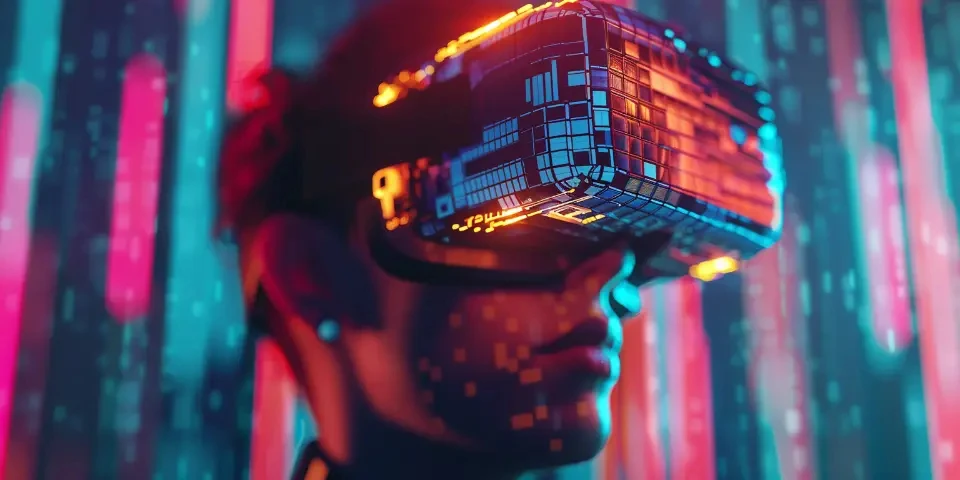The integration of artificial intelligence (AI) into education has revolutionized the way students learn and educators teach. With the ability to process vast amounts of data, AI offers personalized solutions that cater to individual learning needs. In this article, we will explore the various ways in which AI is shaping education and its impact on enhancing learning outcomes.
1. Adaptive Learning Platforms
AI-powered adaptive learning platforms analyze students' performance and tailor educational content to their strengths and weaknesses. These platforms can identify knowledge gaps and provide customized learning materials, ensuring students receive the targeted support they need to excel.

Bullet points:
- Adaptive learning platforms use AI algorithms to assess student performance
- Personalized content helps fill knowledge gaps and meet individual needs
2. Intelligent Tutoring Systems
Intelligent tutoring systems utilize AI algorithms to create interactive and personalized learning experiences. These systems assess students' understanding of the subject matter, provide real-time feedback, and adapt the curriculum to match their learning pace.
Bullet points:
- Intelligent tutoring systems provide on-demand support and guidance
- AI algorithms ensure individualized instruction for students
3. Automated Grading
AIs can accurately and efficiently grade assignments, freeing up teachers' time for more impactful activities. Automated grading systems use machine learning algorithms to evaluate written responses, offering quick and reliable feedback to students.
Bullet points:
- Automated grading reduces the burden of manual grading
- Immediate feedback enhances the learning experience
4. Virtual Reality Applications
Virtual reality (VR) technology combined with AI has brought immersive learning experiences to classrooms. Students can explore historical events, visit distant places, and engage in simulated experiments, allowing for a deeper understanding of complex concepts.
Bullet points:
- VR applications create engaging and interactive learning environments
- Simulations promote experiential learning and critical thinking
5. Intelligent Content Creation
AI algorithms are being used to develop intelligent content creation tools that assist educators in creating high-quality and relevant educational materials. These tools can generate quizzes, worksheets, and lesson plans, saving teachers valuable time.
Bullet points:
- AI assists in content creation, reducing the workload on teachers
- Intelligent tools ensure the creation of effective learning resources
6. Data-Driven Decision Making
AI enables educators to make data-driven decisions by analyzing large sets of student data. By identifying patterns and trends, AI can provide insights on effective teaching strategies, student performance, and areas that need improvement.
Bullet points:
- Data analysis helps identify areas for intervention and improvement
- AI assists in developing evidence-based teaching practices
7. Personalized Learning Paths
AI-powered learning platforms can create personalized learning paths for students based on their individual strengths, weaknesses, and interests. This tailored approach to education nurtures student engagement and motivation while ensuring mastery of core concepts.
Bullet points:
- Personalized learning paths cater to individual learning needs
- Students have a more active role in their education
8. Natural Language Processing
Natural language processing (NLP) enables AI systems to understand and interact with students using natural language. Chatbots equipped with NLP capabilities can provide instant answers to student queries, fostering independent learning and enhancing accessibility.
Bullet points:
- NLP allows for real-time interaction and support
- Chatbots offer personalized assistance and address common questions
FAQs:
Q: Can AI completely replace teachers?
A: No, AI cannot replace teachers, but it can complement their role. Teachers provide invaluable guidance, emotional support, and human connection that AI cannot replicate. AI enhances teaching and learning by providing personalized support and freeing up teachers' time for more individualized instruction.
Q: Is AI in education safe for students?
A: Yes, AI in education is safe for students. Data privacy and security measures are put in place to ensure the protection of students' information. Additionally, AI systems are continuously monitored and updated to provide accurate and reliable educational experiences.
Q: Will AI increase educational inequality?
A: While there is a concern that AI could exacerbate educational inequality, it also has the potential to reduce it. AI can provide personalized education and support to students from various backgrounds, ensuring all learners receive the resources they need to succeed. However, equitable access to technology and connectivity must be addressed to fully harness the potential of AI in education.






